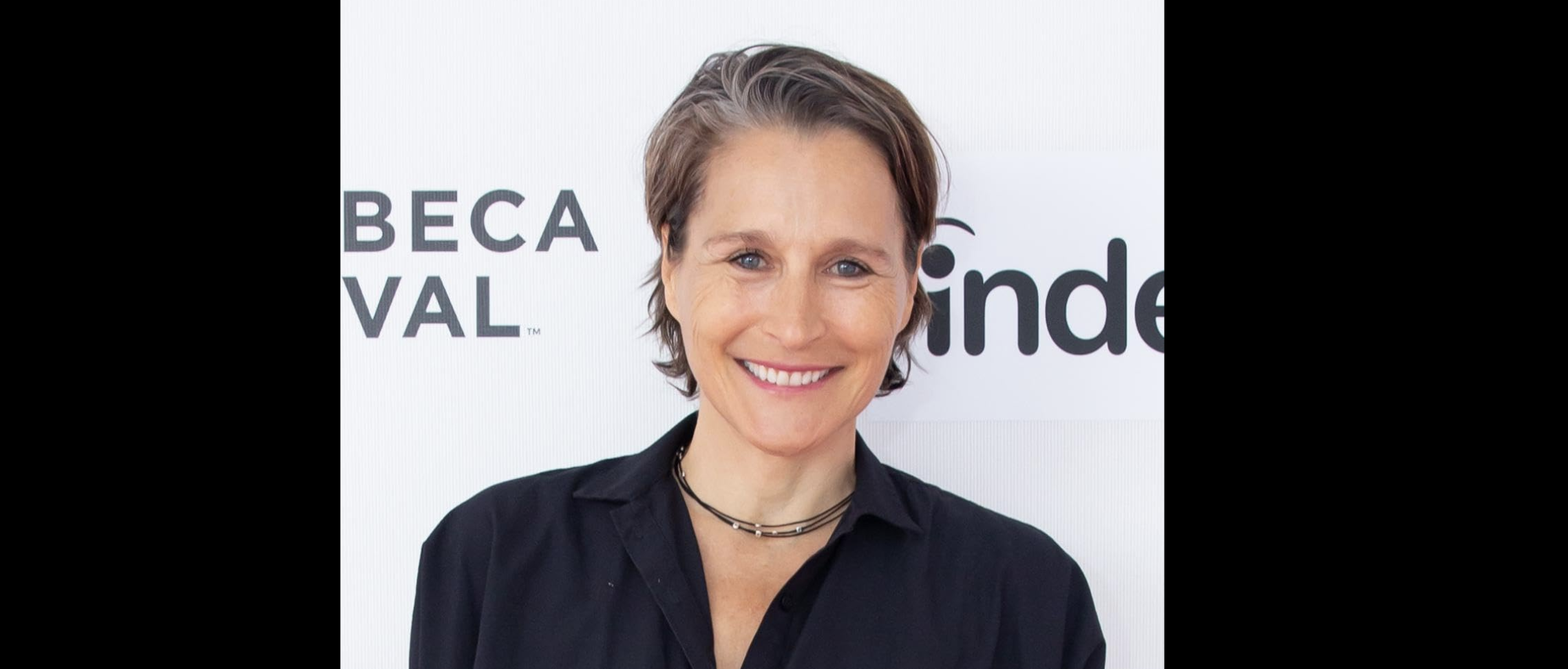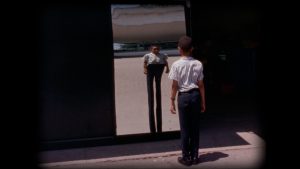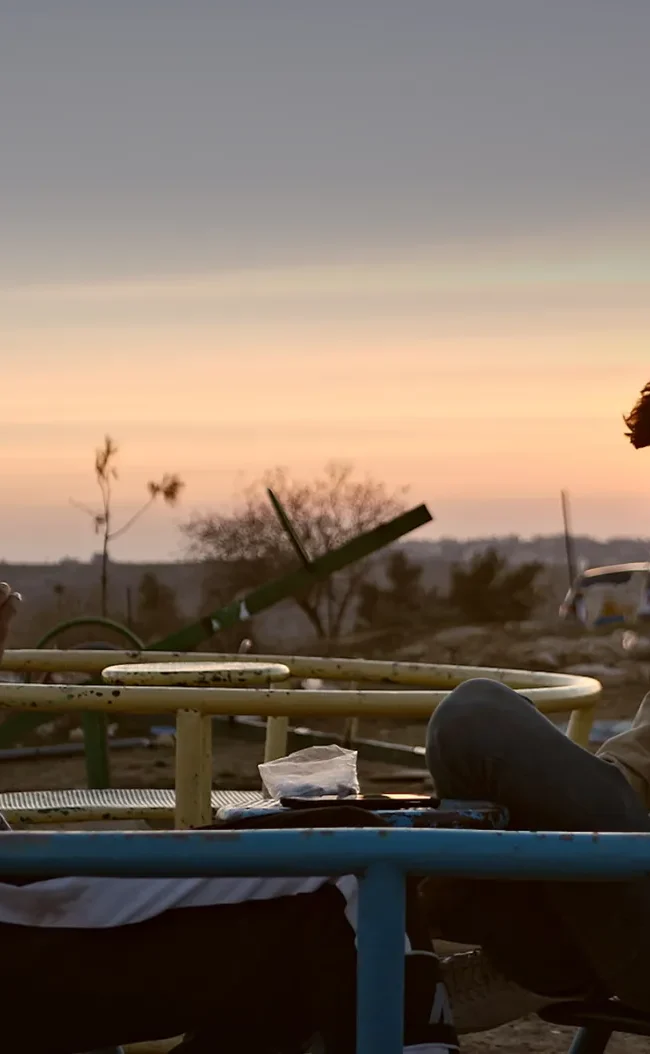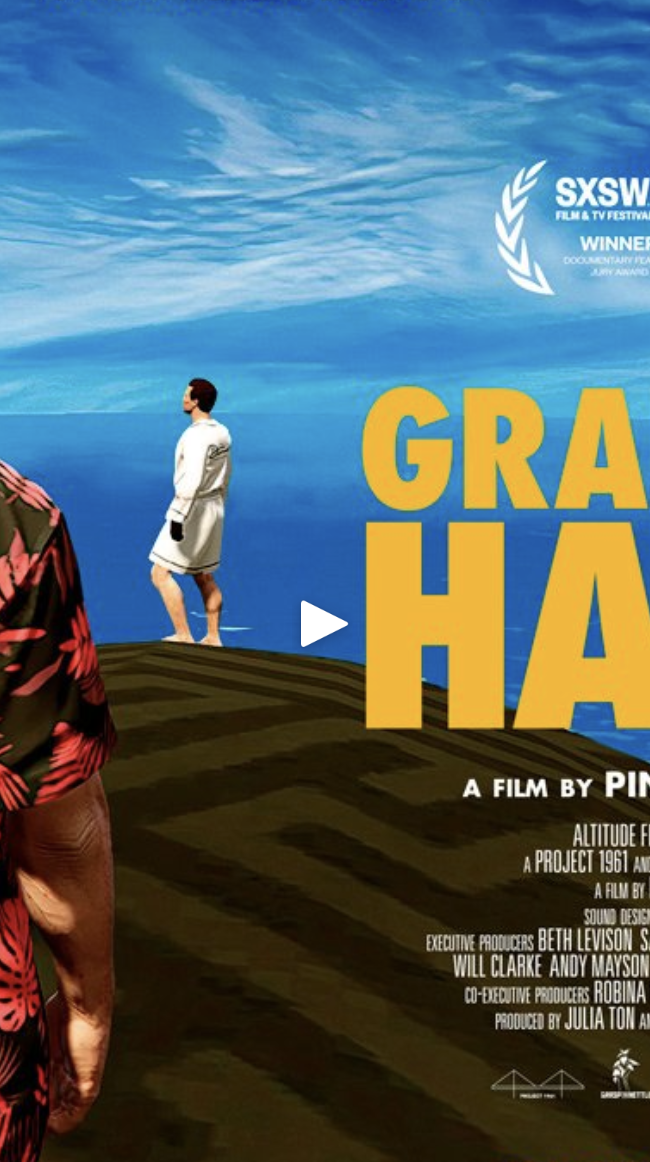A Conversation with Catherine Gund (MEANWHILE)

Films can often be described as “poetic.” Dialogue can be prose-like, editing can be lyrical, but very few films are narrated as an actual original poem, or organized in stanzas like Emmy-nominated documentarian Catherine Gund’s latest “docu-poem,” Meanwhile.
Gund catches a glimpse of the processes of creation driving the work of over a dozen artists; work which breaks through the chaos of daily life and speaks about issues ranging from racism, expression, and identity. Rather than engaging in debates about these issues, Meanwhile acts as a meditation of how we can reflect on the past – past events, past traumas, past creations and creators – to inform its mirror image in today’s reality. The film, shot during COVID, speaks on issues engulfed in most people’s minds during the time, issues eerily similar to those our world may be creeping up in the present.
The film releases on Friday, March 14 at DCTV’s Firehouse Cinema.
Hammer to Nail: The film diverts from the “normal” conventions of a documentary, since the characters of the film are introduced to the viewer simply as they exist. There are no interviews, no personal histories, or spoken or archival timelines of one’s life. What was your intention for this and your expectations for the viewer?
Catherine Gund: I’ve always made character-driven documentaries and, in my case I try to make them be that you learn what you need to understand where we’re going or how we got there. But in this case, I wanted to just be together, and not necessarily interview, but have real conversations and experience artwork. It represents much more how we actually experience each other in this society. We have an encounter that gives us ideas and feels satisfying and nurtures and transforms or heals, whatever you might get out of a chance meeting.
We were going to have everyone you meet in the film just once, but that didn’t make sense. Everyone’s [seen] two or three times. It’s not to pick up narrative, it’s like they’re an old friend, or someone you see at a friend’s house, the person that works at the bodega across the street, the neighbor who walks their dog every morning at the same time you go to the subway. It’s those soft connections we lost during COVID.
HtN: It sounds like the film is less about the people themselves, and rather more the work they are creating and the conversations they inspire.
CG: Yes. We had been talking about many of these issues and it was because these conversations were already in our daily lives together that I thought to engage them in the idea of what Meanwhile would be. The idea was to make it so uninterruptedly experiential, so that there was never a right or wrong answer, or something you had to believe or not believe. Everybody’s in process – the dance is in rehearsal, the sculptures are being made, and the music is being composed.
HtN: Breath is a common motif throughout the film, not just within the narrated poem performed over the film, but the sound of someone breathing plays as well. What role does breathing play in the film and beyond?
CG: Breath, starting in 2020, was not just COVID, but the asphyxiation and murder of George Floyd. Suddenly there was this whole impact of thinking, “What is shared air? What is in the weather that we all share?” That’s the media, our education, our government, and whoever’s creating the system by which racism exists.

A still from MEANWHILE
HtN: While the film is released in 2025, it is both such a time capsule of 2020 – with shots of people walking in masks, news footage of Black Lives Matter protests – and extremely necessary looking forward. When crafting the film, how did you go about maintaining timeliness despite the years separating filming and release?
CG: I do want to answer that, but I wonder if you would take a minute to speak about how it felt to be in that space – an undoubtedly, indisputably traumatic time – while watching this movie?
HtN: I was at a much, much different stage of my life, a much more naive stage. I was aware of what was going on, but much less observant of how I truly dealt with and thought about it all. Now, being able to apply what I’ve learned in the years since – experientially and through education – onto that time period through this film puts me in both mind frames at once. Today is still chaotic – more chaotic in some way – but having a different, and hopefully more mature, view to put over these issues is how I experienced the film.
CG: I think you just answered your question. COVID is never not going to be part of your life or mine. Even though we don’t see everyone wearing masks anymore, when we’re brought back to that. When people watch this film, a lot of the feedback I get is, “I was surrounded by community, I was in a space where I felt cared for, and I was able to reflect on that time in a way that actually helped me grieve or heal or transform some of the negativity.” A young person watched one of our final rough cuts, and the film had been over for like 30 minutes, I walked in, and they were crying. And they said, “I just didn’t want it to end because I didn’t want to be alone again.”
Like you said, all of the issues are still the same, it’s just the creepiest thing. But we’re going to be completely on the back foot, because we’re gutting all of our health systems and our science and the research programs and even the USDA. We’re taking away any little iota of scaffolding that existed during the last pandemic.
HtN: What is the key for surviving amidst these arising issues?
CG: Well, I hope people watch the movie and then have these kinds of conversations together, and that would be the survival. You need to have somebody to talk to. What the film is trying to say is, we can get so much closer. I want people to think about their relationships differently and think about language differently. There’s big words that get thrown around, but that I really do believe in: hope and vision, justice, abolition, utopia. Those are actual, real things that one has to imagine on their own. Think about what the word actually means. Hope means something could be different. We know there’s change, so I think we need to embrace it because I do think we’re much more powerful than we think we are.
– Kaitlyn Hardy











